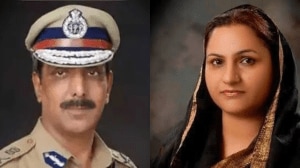For Chief Minister Rane, last stretch is no cakewalk
The Congress government of Pratapsinh Rane has of late taken several drastic policy decisions...

The Congress government of Pratapsinh Rane has of late taken several drastic policy decisions, even rolling back earlier orders to quell the growing anti-establishment feeling in Goa. However, with each such decision the government has only managed to expose its administrative inefficiency and the lack of co-ordination between the party and government. To an extent this has also affected the government’s credibility with investors.
Following his government’s debacle with the Regional Plan 2011, the Chief Minister was seen changing his stance more than once, infuriating protesting environmentalists and NGOs, before eventually going for a roll-back to save face. Even AICC general secretary Margaret Alva—who initially chose to defend the Regional Plan calling Babush Monsettatte, who resigned as Town Planning Minister over the controversy, a martyr—had to agree to denotification of the plan with retrospective effect.
The inability of the government to reach a consensus with its coalition partners on even trivial issues like organising the traditional Carnival has raised doubts among the Congress cadre as to how much the party will compromise with the NCP in case of a pre-poll alliance. The fact that Alva is seen to be more close to the state NCP chief Dr Wilfred D’Souza than her own state president Ravi Naik and Chief Minister Rane could affect the morale of Congress workers in the run up to the Assembly elections.
Rane’s troubles don’t end there. His latest decision to grant official language status to Marathi and Konkani in Roman script is being viewed as a desperate attempt to please both the Hindu Bahujan Samaj and the Catholics.
However, South Goa MP Churchill Alemao, who has emerged as a major critique of his own government, has been quick to condemn this as a sellout to the Marathi lobby. On the other hand, Dr D’Souza has threatened to send a letter to Sonia Gandhi, indicating that he is more close to the Congress High Command. “The Act should not be amended. I will oppose the move in the Assembly,” he announced.
While anti-incumbency is bound to affect the ruling party across the state, the Congress seems headed for a rather tough time in Catholic dominated Salcete taluka. Most Congress MLAs here have been elected for more than four terms.
Pro-Congress groups across the state have been pressing for the need to project new faces, who have no records of defection.
On the other hand, the BJP has already identified around 25 candidates and started work in many constituencies.
Its Ghar Chalo Abhiyan is in full swing and the general mood in the party is upbeat. The party is now banking on the work done by its earlier government led by Manohar Parrikar and the factionalism within the ruling party to see it through.



- 01
- 02
- 03
- 04
- 05




























